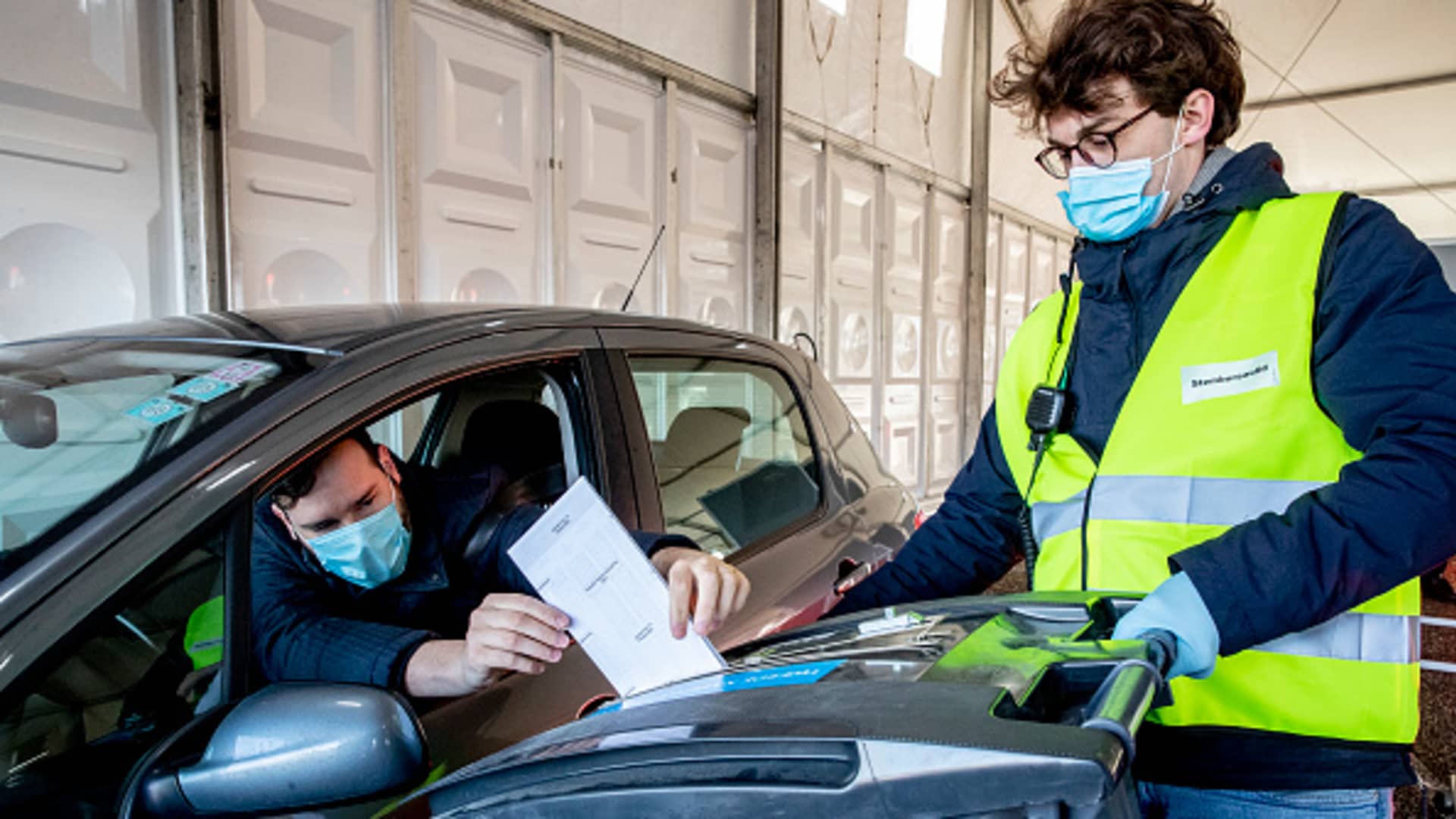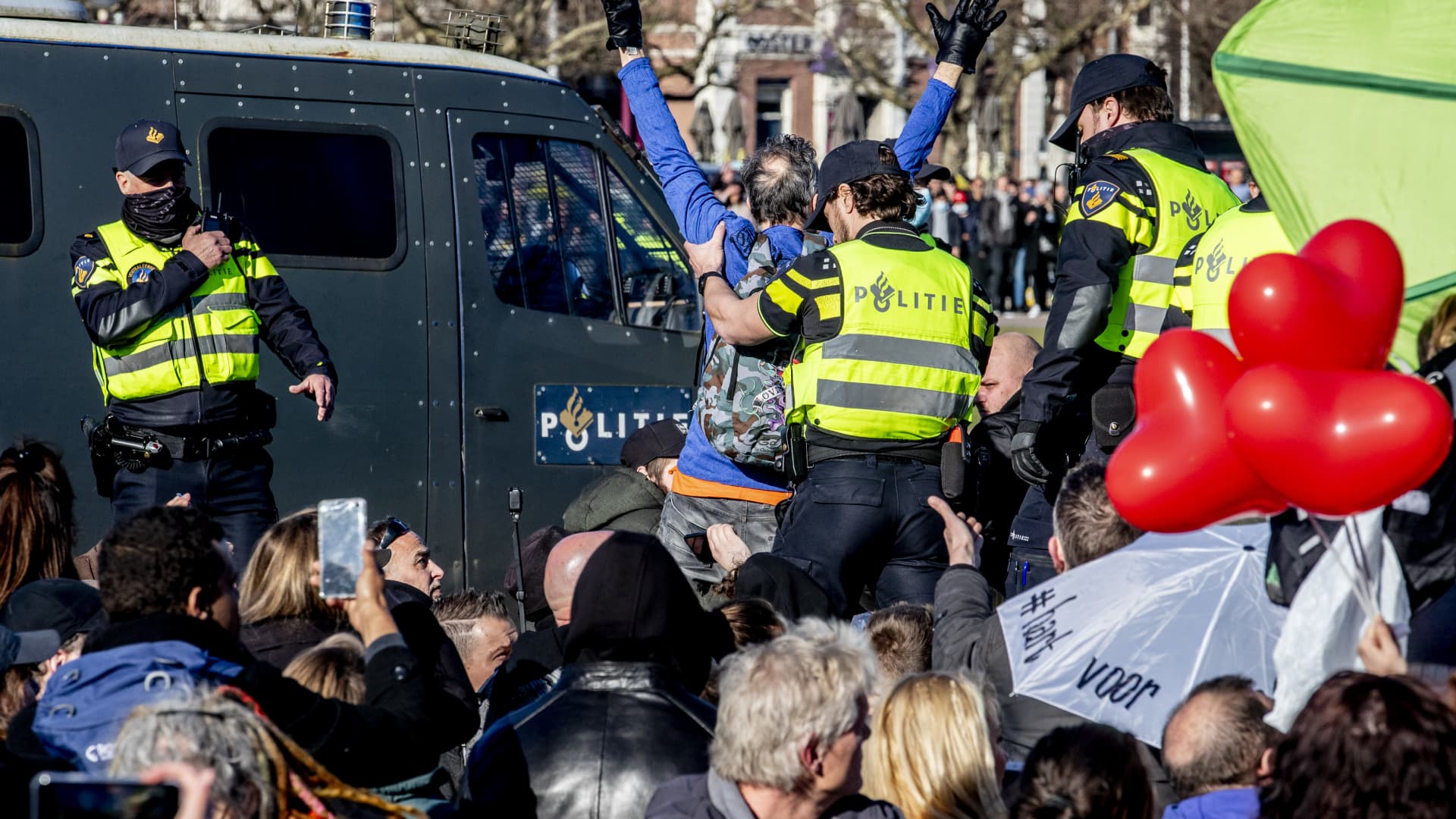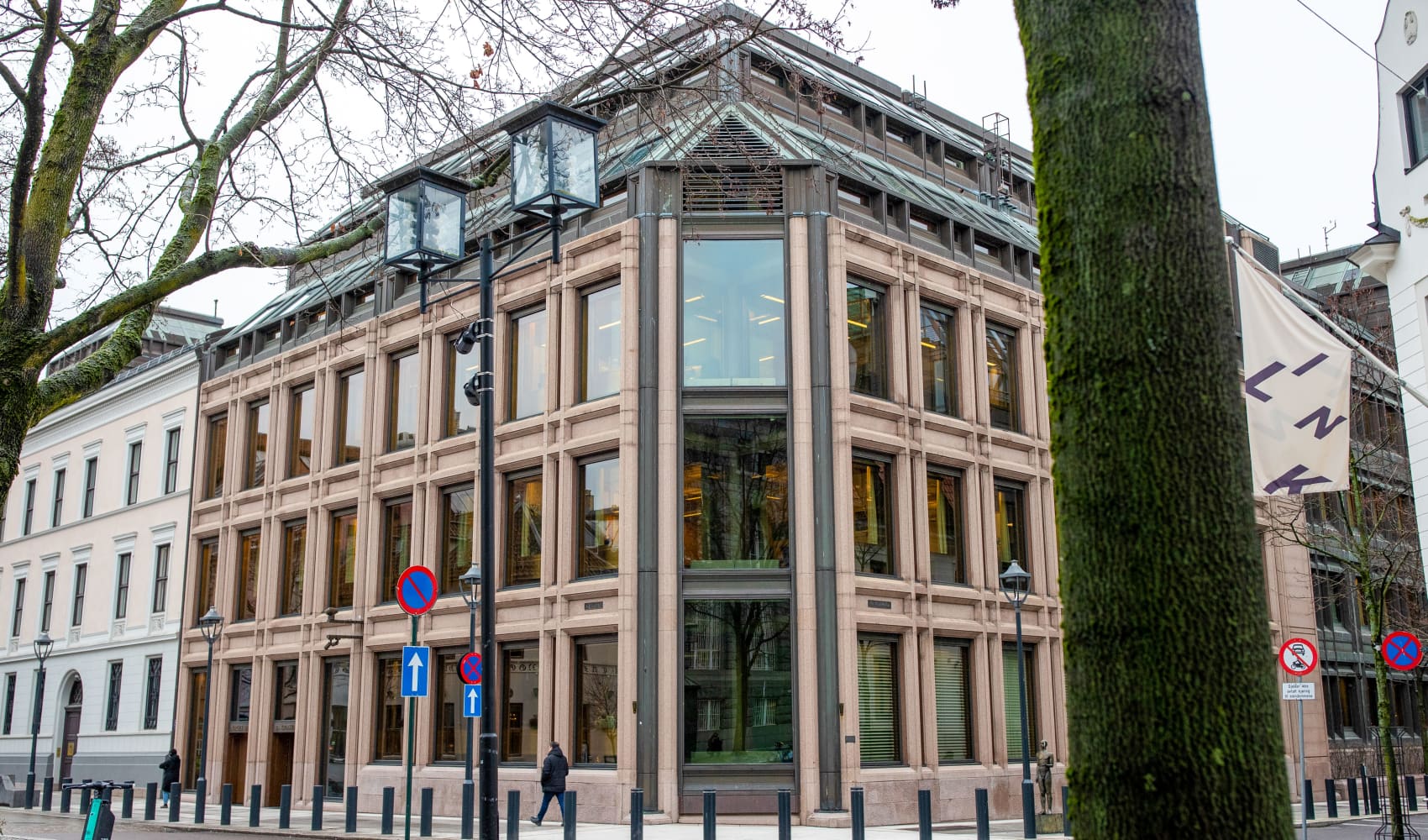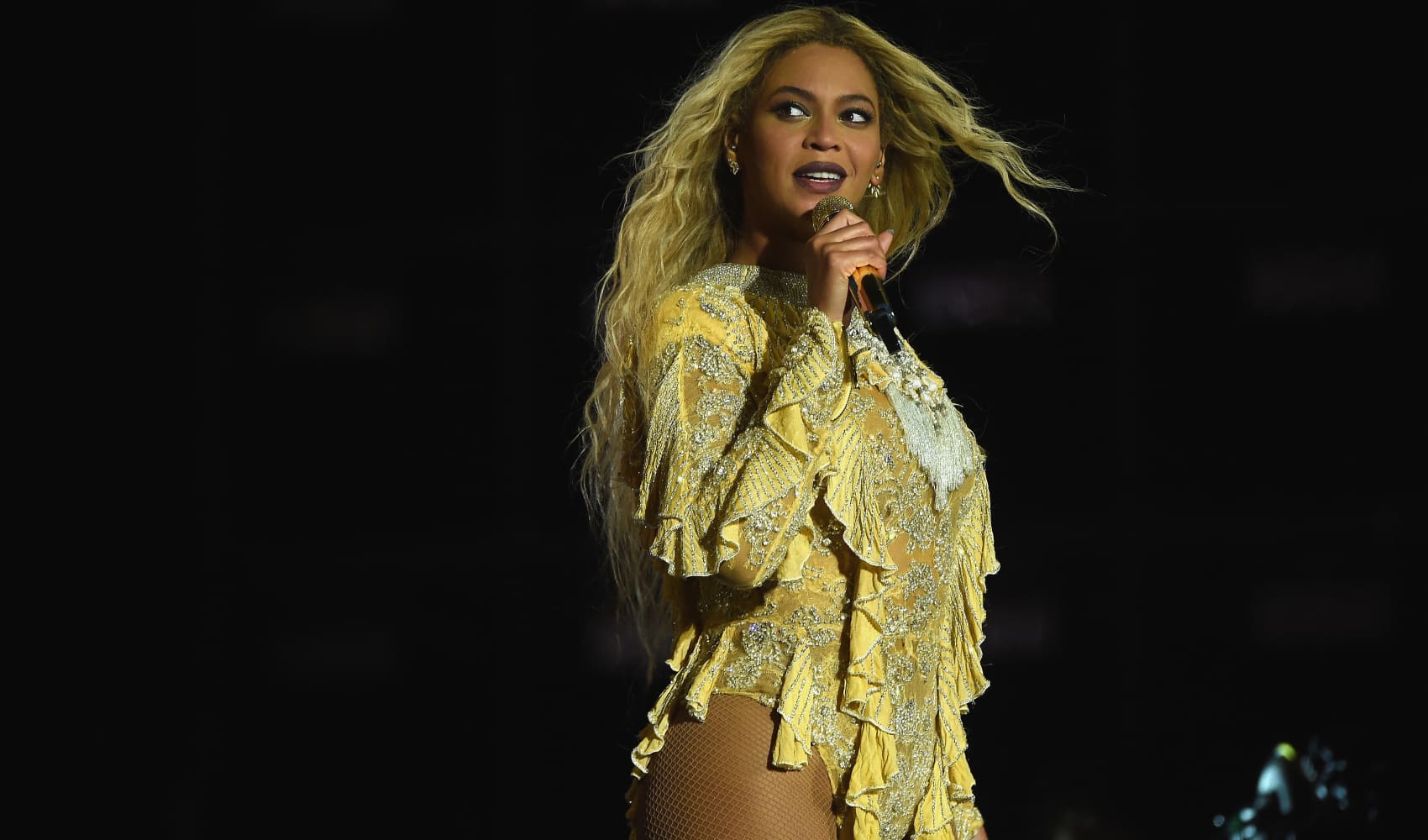
- The general election is largely seen as referendum on the government's handling of the coronavirus pandemic.
- Wednesday is the last day of voting.
- Incumbent and caretaker Prime Minister Mark Rutte and his center-right People's Party for Freedom and Democracy (VVD) are expected to win a fourth term in office.
- As the polls signal, the VVD is unlikely to gain enough seats to govern alone in the 150-seat parliament, the House of Representatives, making another coalition government a likely outcome.

The Netherlands will see a final day of voting take place on Wednesday in a general election largely seen as a referendum on the government's handling of the coronavirus pandemic.
Incumbent and caretaker Prime Minister Mark Rutte and his center-right People's Party for Freedom and Democracy (VVD) are expected to win a fourth term in office, although his party has been rocked with scandal and accusations from critics that it has mismanaged the pandemic.
Feeling out of the loop? We'll catch you up on the Chicago news you need to know. Sign up for the weekly Chicago Catch-Up newsletter here.
Three days of voting began Monday morning and ends Wednesday evening at 9 p.m. local time, with the voting spread out over several days due to the ongoing public health crisis.
Opinion polls show the VVD is ahead of the pack when it comes to voter popularity, although it is trailed by the opposition right-wing, nationalist Party for Freedom, led by controversial figure Geert Wilders.
Four polls published in the last week, before voting started, predicted that Rutte's VVD party could take between 30 to 40 seats in parliament, compared to polls showing Wilders' Freedom Party could win 19-24 seats. The Christian Democratic Appeal party is seen gaining the third-highest number of seats, expected to win 15-19 seats.
Money Report
As the polls signal, the VVD is unlikely to gain enough seats to govern alone in the 150-seat parliament, the House of Representatives, making another coalition government a likely outcome.
That might not be so straightforward; in 2017, it took 225 days for the VVD to form a coalition government with three other parties (the Christian Democratic Appeal, Democrats 66 and Christian Union) — the longest time needed to form a coalition in Dutch history.
Joost Sneller, a D66 candidate, told CNBC Wednesday that "it's going to be a very tight race" but that his party was well-positioned to be a part of talks to form the next coalition government.
"(They should get) a decent number (of seats) but the conservatives from the VVD have been sliding in the past couple of weeks so it's going to be a very tight race today, I believe, but yes, we're positioned very well for the next coalition talks."
Rutte's VVD has been through a turbulent few months aside from the pandemic. A recent scandal surrounding child benefit payments in which thousands of families were wrongly accused of child welfare fraud led to the entire government resigning en masse in January.
Rutte has remained in a caretaker role since and remains a popular politician despite some unpopular restrictions implemented during the pandemic. He is widely predicted to lead a fourth cabinet although the make-up of an expected coalition remains uncertain.
What could affect the vote
Capital Economics' Europe Economist Melanie Debono warned in a note last week that forming a coalition government could take even longer than the last record of 225 days, although she noted this was unlikely to have an impact on the economy.
"In the Dutch multi-party system, the VVD will not manage to govern alone though and greater fragmentation than usual means forming a coalition may take longer than 2017's record 225 days! But such impasses have rarely had much impact on the economy. The VVD is campaigning for a higher minimum wage and lower taxes for full-time workers. While some of these plans will end up being diluted when the reality of coalition politics bites, other parties are similarly advocating supportive fiscal policy."
The Netherlands is one of the EU's larger and more prosperous economies and it has not fared as poorly others during the pandemic. The Dutch economy contracted by 4% in 2020, compared to the 6.8% contraction experienced by the wider euro zone.
Economists largely attribute this better-than-expected economic performance to the country's less stringent first lockdown last spring, its export-orientated economy and the fact it is not as reliant on tourism — a sector that has collapsed during the pandemic.
"The Dutch economy fared relatively well in 2020," Debono noted, "and after expanding in Q4 (the fourth quarter), it ended the year closer to its pre-crisis level than the other major economies. The downturn was shallow because the first lockdown wasn't as strict as elsewhere, the Dutch were already more used to working from home, and tourism is a relatively small share of the economy."
The government's attitude toward lockdown changed over winter, however, as cases increased dramatically, prompting the government to implement a strict lockdown (by Dutch standards) in January. The tougher measures, including a nighttime curfew, prompted riots in parts of the country.

Like its neighbors, the Netherlands has seen an increase in Covid infections in recent weeks that has largely been attributed to the spread of more virulent variants of the virus.
Adding to its difficulties, the Netherlands was one of the last countries in the bloc to initiate its coronavirus vaccination program, and immunizations have proceeded at a slow rate.
The vaccination program will no doubt be hindered further following the Netherlands' decision (as well as a raft of other countries) to pause vaccinations using the AstraZeneca/University of Oxford shot over concerns about possible side effects, despite the World Health Organization saying there is no link between the shot and an increased risk of developing blood clots.
Bars, restaurants and gyms are closed while non-essential shops were allowed to reopen to a limited amount of customers, by appointment only, in early March. From March 16, shops will be allowed to reopen to a limited number of customers as long as there is enough space between them. The curfew — the first since the Nazi occupation in World War II — is expected to remain in place until the end of March. Public gatherings of more than two people are also banned.
In the meantime, anti-lockdown sentiment continues with riot police using a water cannon to break up an anti-lockdown demonstration in The Hague this weekend. This latest lockdown means that the country's economy is unlikely to avoid a contraction in the first quarter.
"Although the government started easing the lockdown from 3rd March, many businesses will have been shut for two thirds of Q1 (the first quarter) and others, e.g. restaurants, throughout. But the Netherlands is still comparatively well placed and, as elsewhere, GDP growth should rebound from Q2," Capital Economics' Debono said.






